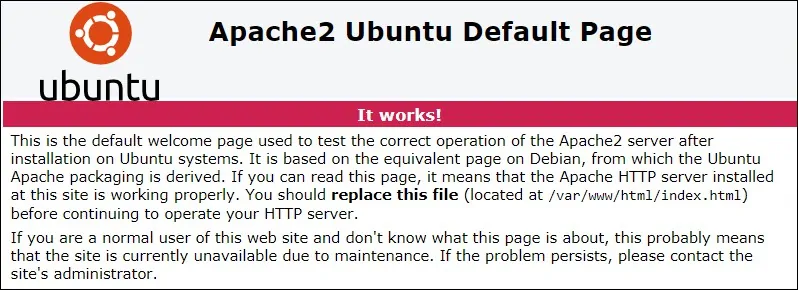Would you like to learn how to install Apache and configure the HTTPS feature to use a self-signed certificate on a computer running Ubuntu Linux? In this tutorial, we are going to enable the use of HTTPS on the Apache server and create a self-signed certificate.
• Ubuntu 18
• Ubuntu 19
• Ubuntu 20
• Apache 2.4.41
Copyright © 2018-2021 by Techexpert.tips.
All rights reserved. No part of this publication may be reproduced, distributed, or transmitted in any form or by any means without the prior written permission of the publisher.
Equipment list
The following section presents the list of equipment used to create this tutorial.
As an Amazon Associate, I earn from qualifying purchases.
Apache - Related Tutorial:
On this page, we offer quick access to a list of tutorials related to Apache.
Tutorial Apache - Enable HTTPS
Install the Apache server and the required packages.
Enable Apache module named: Mod_ssl.
Enable Apache module named: Mod_rewrite.
Edit the Apache configuration file.
Add the following lines at the end of this file.
Create a private key and the website certificate using the OpenSSL command.
Enter the requested information.
On the option named COMMON_NAME, you need to enter the IP address or hostname.
In our example, we used the IP address 200.200.200.2000.
Edit the Apache configuration file for the default website.
Here is the file, before our configuration.
Here is the file, after our configuration.
Optionally, you may want to redirect HTTP users to the HTTPS version of your website.
In this case, use the following configuration.
Restart the Apache service.
Open your browser and access the HTTPS version of your website.
In our example, the following URL was entered in the Browser:
• https://200.200.200.200
The Apache server will display the HTTPS version of your website.

Congratulations! You have finished the configuration of HTTPS on the Apache server.
